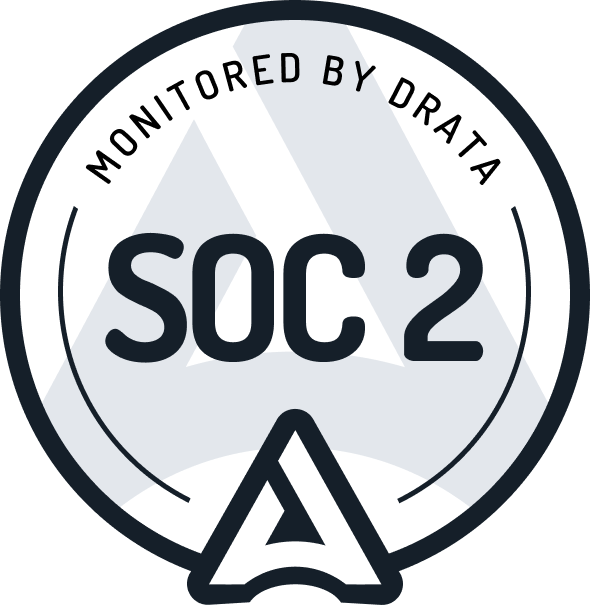
Top 7 Platforms for Developer Communities in 2021
Get notified when customers mention you online - with Crowdlens
The developer world is an ever-expanding space consisting of people from all walks. If individual coders or companies handled all projects without networking with other developers, their capabilities would be limited. Communities help harness the power of connection, whereby devs can combine their creativity and skills to help them produce more sophisticated programs. Developers can connect, get quick answers to questions and even laugh at some nerdy jokes.
With so many online community platforms out there to choose from, it can be hard to determine which one is best for you as a developer. Luckily, we have taken our time to dig deep and come up with a list, so you don’t have to. Here, we bring you the best developer platforms for both companies and individuals, and we also highlight the significant setbacks associated with each.
- GitHub
GitHub is by no doubt one of the most versatile and acclaimed developer platforms in the world today. The platform has over 50 million users and as many as 200 million projects, expanding every single day. GitHub is very effective for developers seeking to harness collaborative power. The platform brings a lot to the table, and all you need is access to the resources you require to grow and dash out innovative ideas.
As expected, the enterprise accounts take the collaborative efficiency to a whole new level while making it easier to oversee, manage projects, and nurture new talent. As if not enough, the platform makes it easy to access audit and analytic insights that help enrich your team's abilities and keep them focused on the long-term company goals.
One of GitHub’s setbacks is that it is somehow expensive to set up a versioning repository, so startups and junior devs may struggle to realize this cost. However, those that indulge often claim that the experience is worth every dime. Users are also keen to note that the GUI is somewhat confusing, and it could be better if it took lesser time to learn, so they don’t have to overuse commands.
Chances are you have come across Reddit in your programming career, whether you are an active developer or a manager. Reddit is a vast platform that boasts well over 330 million users, which compares to more or less the entire population of the US. Numerous programming discussions are going on in the platform at any given time, and these engagements help developers get answers to questions. As a result, the devs are able to stay on top of their game as well as discover changing and proven technologies. Reddit is ideal for juniors as the communities here can help to nurture, direct and encourage those that are where they were in the past. Subreddits can be very resourceful for programmers who want quick feedback on the material they are working on.
Probably one of the most significant upsides of using Reddit is its user-friendly, simple design, and heightened ease of navigation. Being such a large community, it goes without saying that one of the biggest setbacks is interactions with trolls and unserious people who do not follow the rules. Also, it can be a little demoralizing for fresh developers, but this they can overcome by remaining focused on the bigger picture and taking every ounce of criticism positively.
- Stack Overflow
Stack Overflow is highly popular because it provides helpful answers to simple, conventional programming concerns. Started in 2008 and currently boasting over 50 million users monthly, Stack Overflow is an excellent option for both managers and developers. Users are always available to provide answers to you, identify bugs and give solutions that enrich your code regardless of the type of project you are working on. Some of the most largely discussed languages in Stack Overflow include Python, Android, JavaScript, and PHP. To illustrate how big the platform is, the company’s yearly developer survey was the biggest survey conducted by global programmers for ten years in a row and most recently boasted over 65,000 individuals.
Stack Overflow has now launched Collectives, a resource for companies to set up essentially privatized communities where their developers can interact with others on more precise discussions. Collectives even allow managers to capture insights that they can analyze to make better decisions. With Stack Overflow Collectives and Stack Overflow Teams, which was introduced in 2018, the internal usage of the platform for companies has never been better.
On the downside, it is easy for highly experienced programmers to get bored of answering questions all the time because they are not frequently challenged. Probably the biggest challenge on this platform is minimized moderation, which means that green learners can easily pick up a wrong answer because the information is only verified by comments from other users. This means that sometimes you have to dig deep to find and digest the correct answers to your concern.
- Twitter
Twitter’s sophisticated developer platform brings together developers of all levels. It provides a safe and inclusive environment where everyone treats each other with respect. On this platform, discrimination against junior developers is highly unlikely. Twitter promotes the learning of new skills so that developers can advance their careers. It organizes meet-ups for developers who desire to work with the company’s APIs and other related products. During these locally organized meet-ups, developers can share talks over brunch or can go all technical, attend workshops and hackathons. Even better, the Twitter developer platform always welcomes people willing to facilitate such meet-ups in their cities, meaning that you can become the change that your city needs.
If you are not able to attend locally arranged meet-ups, you can connect online and still hone your skills for building top apps, executing efficient integrations, and more.
There is a lot of room for growth, so Twitter needs to find more ways of reaching out and giving incentives to many other countries, especially those still developing in Asia and Africa. In the future, we’d like to see a representation or arrangement for every country’s capital.
- Discord
Discord is another resource that ranks at the top with the other platforms listed here. The platform offers an array of products and activities that can revolutionize a developer’s career. They have an extensive library where developers can learn and perfect their skills in various languages. However, the platform does not allow the usage of custom libraries that go against their guidelines or abuse the API. Some areas that Discord specializes in are the interactions for making bots, SDK and dispatch tools that simplify development on diverse platforms, or embedded visualizers that allow you to manipulate JSON data. People say that Discord should improve its UI for a better user experience. The reviewers also note that they experience difficulties while messaging and lagging functionalities, including search.
- Code Project
Boasting close to 15 million members, Code Project is a community platform that allows devs to help each other by sharing experiences. They do this by using text, code, and projects. In fact, the platform has an exciting integration whereby you can directly import a project from your GitHub.
On Code Project, you can source support for multiple programming languages as well as other unrelated topics. The platform's usability is excellent as it displays the names of forums, descriptions for the categories, time of the last post, and total posts on each forum in a simple, easy to view table. Code Project has an award program dubbed ‘most valuable professionals’ where they gift the members who make the most contribution to the community in terms of submitting articles and answering questions actively.
- Women Who Code
We can’t pen off without mentioning Women Who Code, a platform that empowers women and encourages them to become developers. Since its inception in 2011, Women Who Code aims to dismiss the stereotypes surrounding women in the programming industry by inspiring, supporting, and honing their technical skills so they can progress their careers. The site has a host of functionalities, including coding events, scholarships, and job boards.
While on tour, ladies may be required to take part in hackathons, which require ladies to undergo a screening process, and therefore the platform is highly competitive. Such potentially demoralizing undertakings may not be comfortable for starters who join for initial empowerment, and this we feel is against the primary focus of nurturing women to code.
The usefulness of developer communities goes beyond providing answers to questions. The support system that these communities offer is priceless. They are essentially an ecosystem whereby developers on different levels can help each other with everyday problems. Every community has a host of functionalities and user experience that makes it stand out. Some even offer analytical data that you can leverage to impact your skillset positively. As far as companies go, leaders should focus on creating teams on the platforms that allow collaboration and easy interaction to help their devs grow their talent and produce enhanced code for the benefit of the employees and the company. With the technological breakthroughs that occur at the moment, the future of developer communities will be bright.
Get insights to your inbox.
Once per month. No spam.


.png)





